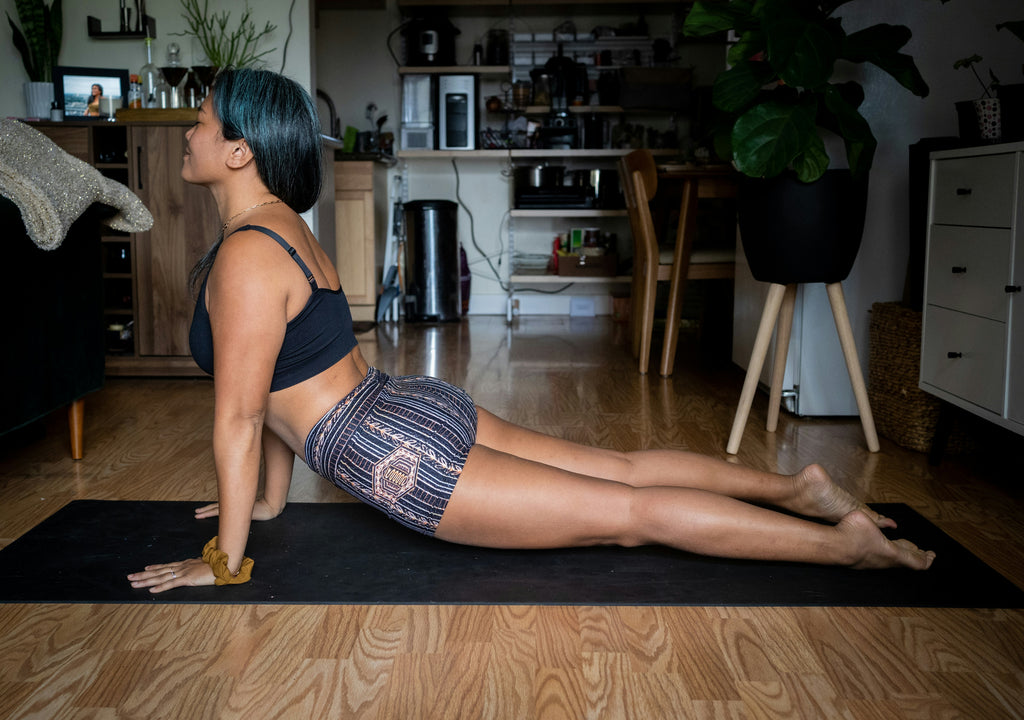
Don't Let Stress Steal Your Fitness: Strategies for Staying Fit & Calm in Your 40s
Remember that day? Rushing to a meeting, fielding work calls while navigating rush hour traffic, all while mentally preparing for the school play later that evening? That is the quintessential "juggling act of your 40s." And let's be honest, amidst the whirlwind of responsibilities, prioritizing fitness can feel like adding another weight to your already full plate.
Prolonged stress can wreak havoc on your body, depleting your energy, disrupting your sleep, and even undermining your enthusiasm for exercise. Here's a revelation you may not be aware of yet – managing stress is your secret weapon to unlock your fitness potential, particularly in your 40s.
There's good news waiting for you. By weaving a few straightforward strategies into your daily routine, you can counteract stress effectively, thereby paving a smooth path towards an active and rewarding life.
In this post, let's explore the link between stress and fitness in your 40s. Let's unravel how stress impacts your body and overall well-being and, crucially, equip you with practical tools to construct your personalised "stress-management tool-kit".
Fine Line Between Acute and Chronic Stress: Impact on Physical and Mental Well-being

Stress, a physiological and psychological response to a perceived threat or challenge, isn't inherently bad. In fact, acute stress can be a powerful motivator, helping us focus and perform at our best. Imagine the surge of adrenaline you get before a big presentation – that's acute stress in action.
However, when stress becomes chronic, the constant activation of our fight-or-flight response negatively affects your health. Over time, chronic stress can:
- Weaken the immune system, making us more susceptible to illness.
- Disrupt sleep patterns, leading to fatigue and difficulty concentrating.
- Contribute to anxiety and depression.
- Increase the risk of chronic diseases such as heart disease, diabetes, and obesity.
A healthy dose of acute stress can motivate us to tackle challenges and meet deadlines. However, chronic stress, that constant, low-level hum in the background, takes a toll on our physical and mental well-being. And guess what? As we enter our 40s, our bodies become more susceptible to the harmful effects of chronic stress.
Recognizing Your Stress Signature
Life in your 40s often throws a unique set of curveballs. Work demands, family responsibilities, financial pressures, and the ever-present awareness of aging can be a recipe for chronic stress. Recognizing your individual stress triggers is the first step toward effective management.
Here are some common stressors faced by individuals in their 40s:
- Work-life balance: Finding time for yourself and your family amidst demanding careers can be a significant source of stress.
- Career changes and advancement pressures: Whether facing a career plateau, navigating a mid-life career change, or dealing with increased responsibilities at work, these transitions can be stressful.
- Financial pressures: Mortgage payments, saving for retirement, and unexpected expenses can all contribute to financial stress.
Beyond identifying the sources of your stress, it's crucial to be mindful of your body's signals. Stress can manifest in various ways, both physically and emotionally. Here are some common signs to watch out for:
- Physical: Headaches, fatigue, muscle tension, digestive issues, changes in appetite, sleep problems.
- Emotional: Anxiety, irritability, difficulty concentrating, feelings of overwhelm, depression.
Practice self-awareness and pay attention to how your body and mind react to different situations. Recognizing your unique stress signature is crucial for choosing the most effective stress-management strategies.
Your Personal Stress-Management Toolbox

Now that you understand the importance of managing stress and have identified your personal triggers and signs, it's time to build your own stress-management toolbox. Remember, there's no one-size-fits-all approach. Experiment and find what works best for you.
Mindfulness and Meditation:
- Mindfulness is the practice of paying attention to the present moment without judgment. It has been shown to reduce stress, improve focus, and enhance emotional regulation.
- Meditation is a form of mindfulness training that involves focusing your attention on a specific object, thought, or breath. Different meditation techniques exist, such as guided meditation and breathwork exercises
Stress-Reducing Activities:
- Physical activity: Exercise is a powerful stress reliever. Engaging in regular physical activity, even something as simple as a brisk walk, can significantly reduce stress hormones and boost your mood.
- Explore beyond traditional exercise: Activities like yoga, tai chi, and nature walks offer a gentle yet effective way to manage stress while connecting with your body and the environment.
- Hobbies and creative outlets: Engaging in activities you enjoy, whether it be painting, playing music, reading, or spending time in nature, can provide a healthy escape from daily pressures and promote relaxation.
Building Resilience: A Holistic Approach:

Remember, self-care isn't selfish, it's essential. Prioritize enough sleep, eat nourishing foods, and set healthy boundaries to create a foundation for managing stress.
It's important to build a personalized toolkit of stress-management strategies. Identify the techniques that resonate best with you, and create a personalized "toolbox" to combat stress effectively. Combining different approaches like mindfulness, physical activity, and self-care habits can create a holistic stress-management plan.
Even small steps toward managing stress can have a significant positive impact. So, take action, experiment with the suggested strategies, seek professional help if needed, and celebrate your progress toward a less stressful and more fulfilling life.





